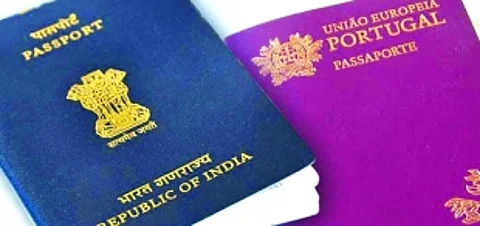

The stand of the Govt of India in the Mehul Choksi extradition case, under process in Dominica has far reaching consequences for Goa. It vindicates my oft repeated stand that Goans born prior to December 20, 1961 hold both Indian and Portuguese Citizenship.
The submissions made by India before the Court in Dominica as reported by the media, made me perk up, and take note:
“Under Section 23 of Citizenship Rules 2009, it is necessary for an Indian to renounce his citizenship and the Union Home ministry to ratify it. The process has not been completed by Mehul Choksi. The process of renouncing citizenship involves a declaration before a designated officer, verification of particulars and issuance of a certificate. (NDTV)
Under the due process of law, a person can surrender Indian citizenship, however, Mehul Choksi never completed the paperwork and procedures to give up his Indian citizenship and that’s why he remains an Indian citizen, Apart from incomplete paperwork, the identity cards of Mehul Choksi like ration card, Aadhar card and his PAN Card reflect that he is an active Indian national (India Today).
Now let us visit the law relating to citizenship
ARTICLE 5: CITIZENSHIP AT THE COMMENCEMENT OF THE CONSTITUTION
At the commencement of this Constitution, every person who has his domicile in the territory of India and –
(a) who was born in the territory of India; or
(b) either of whose parents was born in the territory of India; or
(c) who has been ordinarily resident in the territory of India for not less than five years immediately preceding such commencement, shall be a citizen of India.
ARTICLE 9: Person voluntarily acquiring citizenship of a foreign State not to be citizens. No person shall be a citizen of India by virtue of Article 5, or be deemed to be a citizen of India by virtue of Article 6 or Article 8, if he has voluntarily acquired the citizenship of any foreign State.
As a follow up to the Constitution, the Citizenship Act 1955 was enacted.
Section 8. TERMINATION OF CITIZENSHIP: Renunciation of citizenship.―(1) If any citizen of India of full age and capacity, 1 ***, makes in the prescribed manner a declaration renouncing his Indian Citizenship, the declaration shall be registered by the prescribed authority; and, upon such registration, that person shall cease to be a citizen of India …..
To further implement the Citizenship Act, Citizenship Rules, 2009 have been framed and Rule 23 reads:
Declaration of renunciation of citizenship. A declaration of renunciation of citizenship of India under sub-section (1) of section 8 shall be made in Form XXII, and shall state: (a) under which provisions of law, the applicant is an Indian citizen; and (b) the circumstances in which the applicant intends to acquire foreign citizenship.
(2) On receipt of the declaration of renunciation of citizenship of India under sub-rule (1), an acknowledgement in Form XXIII shall be issued by an officer designated under rule 38.
(3) The declaration shall be registered in the Ministry of Home Affairs, Govt of India.
(4) The Central Govt in the Ministry of Home Affairs shall maintain a register in Form XXIV containing the names of persons whose declaration of renunciation of citizenship are registered under this rule.
Thus a detailed procedure to renounce Indian citizenship has been laid down. And that, unless such a declaration is made and accepted, the person continues to be a citizen, as rightly submitted before the court in Dominica, by India.
Any person who secures foreign citizenship continues to be an Indian citizen until he complies with Rule 23. Goans born prior to December 20, 1961, who continued to live in their land, have not filed any application in Form 22. Neither have such Goans “voluntarily acquired citizenship of a foreign country” to come within the purview of Article 9, as they held Portuguese citizenship even before Indian citizenship was conferred. How could they have voluntarily given up Indian citizenship before such citizenship was conferred on them?
As Goa was not territory of India Goans were not citizens when the Constitution and the Citizenship Act came into force. Hence the Citizenship Order dated March 28, 1962 was issued, the relevant part of which (Sec.2) reads:
Every person who or either of whose parents or any of whose grand- parents was born before the twentieth day of December, 1961, in the territories now comprised in the union territory of Goa, Daman and Diu, shall be deemed to have become a citizen of India on that day:
Provided that any such person shall not be deemed to have become a citizen of India as aforesaid if within one month from the date of publication of this Order in the Official Gazette that person makes a declaration in writing to the Administrator of Goa, Daman and Diu or any other authority specified by him in this behalf that he chooses to retain the citizenship or nationality which he had immediately before the twentieth day of December, 1961……
The proviso merely denies Indian Citizenship to those who made a declaration opting to continue their existing citizenship, but does not (and cannot) terminate the existing citizenship, as India has no authority to terminate citizenship of another country. Portugal itself has not issued any notification terminating Portuguese citizenship of Goans who were citizens of Portugal as on December 20, 1961. On the contrary, Portugal continues to acknowledge them as its citizens. Hence, Goans continue to be citizens of both Portugal and India.
Any reason why the interpretation of the law for Goans should be any different from that for Choksi in Dominica?
(Radharao F Gracias is a senior Trial Court Advocate)